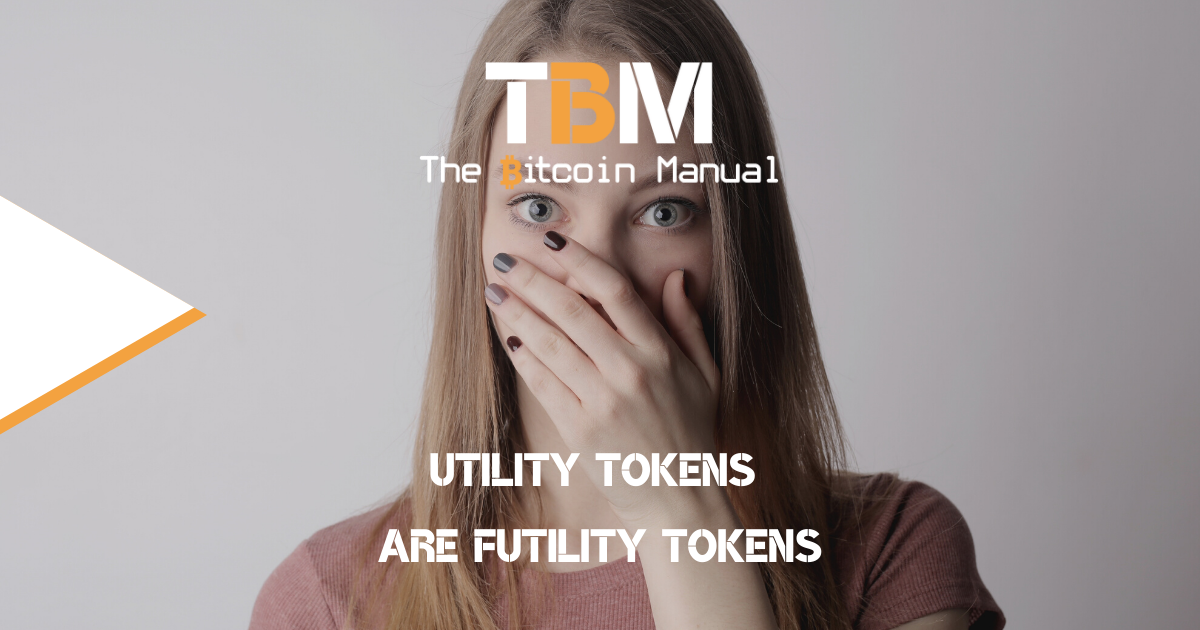Bitcoin’s revolutionary technology and promise of decentralising the base layer of all trade money has sparked a global race of tokenisation. To onlookers from the outside who have not done the work, bitcoin and cryptocurrencies are the same things. I can’t fault someone who hasn’t spent hours going through how bitcoin works and comparing it to other projects; its time consuming, laborious, and very few see the upside in doing the research.
They come into the space the same way I did, wanting to get wealth from nothing. Tell me how do I get rich quick is all they want to know. So we’ve established the fickle motivations of the retail investor, so what’s in it for the token creator? Sadly the same thing, but to get rich quickly without risking capital, they want to take on your money.
These token projects count on this association for survival; the appeal of getting in on the “next bitcoin” is what keeps this crazy market alive. As long as a steady stream of people are willing to gamble, there will be no shortage of tokens to speculate on in the market.
When investing and capital flow is a game of speculation, it’s all about who can craft the best narrative, and one of the more popular blockchain narratives has to be the utility token.
I hear it all the time; bitcoin does nothing, my token does X and Y; I honestly wish everyone had the conviction some people have over a project only because they own a few 100 tokens. I had to work at building my belief in bitcoin. Still, these token shills, they’ll instantly fall for the well-crafted marketing pitch and defend it vehemently against the naysayers.
So in the interest of being a naysayer, let’s see why utility tokens aren’t the game-changing financial tool being sold to you.
The misunderstanding of utility tokens.
Many retail investors who find themselves speculating in digital assets think the token is a stock certificate and that there is some token company actually building value in the real world. People conflate the token with stocks, and no one corrects them. Bitcoin is NOT a stock and neither are cryptocurrencies, they are unregistered securities.
Stockholders can benefit from price appreciation, divident payouts, buybacks and, in some cases, have governance rights.
When it comes to a utility token, all you have access to is price appreciation and the ability to spend it using the services of the protocol. Imagine spending a stock to execute a smart contract or getting cloud computing storage? How would that make sense?
A stock represents the income the company can generate and is a call on that future income. A utility token is simply an unnecessary step in accessing a walled garden service that probably has no product-market fit in most cases.
But people will trade them with a high level of conviction, and exchanges don’t care; they are in it to make fees and are happy to list anything people want to buy and thus lending more legitimacy to these tokens.
The utility isn’t an indication of value.
As is it says in the name; the utility token promises to capture and give access to the value of using the service. The theory goes, if you need to use a particular tool, you don’t pay them money like a regular business; you buy their token instead and pay using the token.
But here’s the thing with utility, it normalises over time and becomes less valuable to people, especially if the competition offers similar options. To give you an idea of how utility becomes priced in and reduced in value over time. Let us look at big data and AI; we all know it has value when applied in specific ways, like, for example, a spell checker, picking up more words every day, growing its database, figuring out issues with spelling and helping the user correct it.
The user doesn’t realise she’s using AI when her spell-checker corrects the email in the background. No matter how good machine learning is over time, people care less about its value, it is now the established baseline, and you can’t take it away. These waves of innovation come and eventually normalise; it’s priced in as we take it for granted and move on to the next hype. In the end, the result of your success is that the end-user uses the product without caring about the actual nuts and bolts of the technology, which has been entirely hidden from them.
The reconciliation of opposing forces
Utility tokens are held by investors thinking the use case of the product will drive demand for the token, and it will appreciate in price. Many proponents of these coins talk about the total addressable market and the number of users that could possibly come in and drive demand for the token and compare it to bitcoin.
Bitcoin is designed as a store of value with its NGU technology, and it has made certain trade-offs to support that goal and provide assurances towards that goal of price appreciation.
Utility tokens rely on the idea that their product will be so irresistible and no one would compete with it that value will flow into it, and it’s only a matter of time.
The issue with this thesis is that you have to deal with many opposing forces on the price. As the price of a token increases, it reduces the need to want to use the token; the more of the token I use early on, the less I have to sell in the future, limiting the use of the service. In fact, using the product with my token could have serious opportunity costs down the line, encouraging me not to use the product but horde the token.
If the price is too high, it also makes access to the service more expensive, pushing users’ way towards alternative options.
If the price is low, it may attract users and use of the token, but there will always be an upward bound that once hit pushes users away from using the token and limits price appreciation.
So in simple terms, no, your token is not going to the moon.
Money beats utility tokens.
Let’s say you do have a product that has utility, and people want to use it and buy the token, but you also have a competitor that offers the same utility but accepts money, be that fiat or bitcoin.
In the utility token’s environment, the user constantly has to consider holding coins if they want to use the porduct, which is an opportunity cost loss. Especially they want to use the funds for something else, and perhaps even a negative sunk cost over time. It would help if you also balanced token price with the price to use the utility, making it more challenging as you have to juggle more variables to remain competitive.
In the product that uses money to pay for services, the barrier to entry has less friction; people can come and go as they please, and you have more control since you only adjust one variable, which is the price. As demand shifts or competition increases, you can adjust pricing to attract users.
If you were a consumer, which option would you choose? The more convenient one. So how long do you think the convoluted pricing to get access to the resource is going to last as competitors who accept money continue to eat market share?




